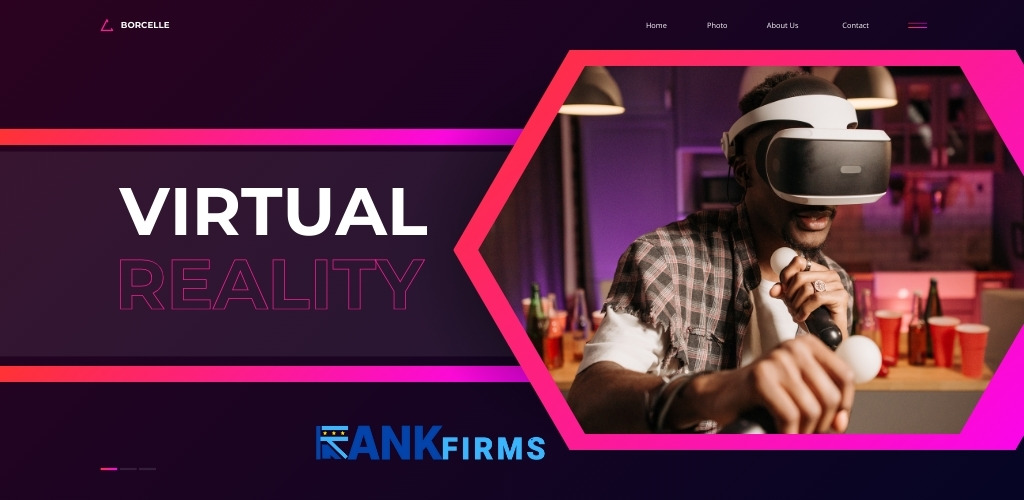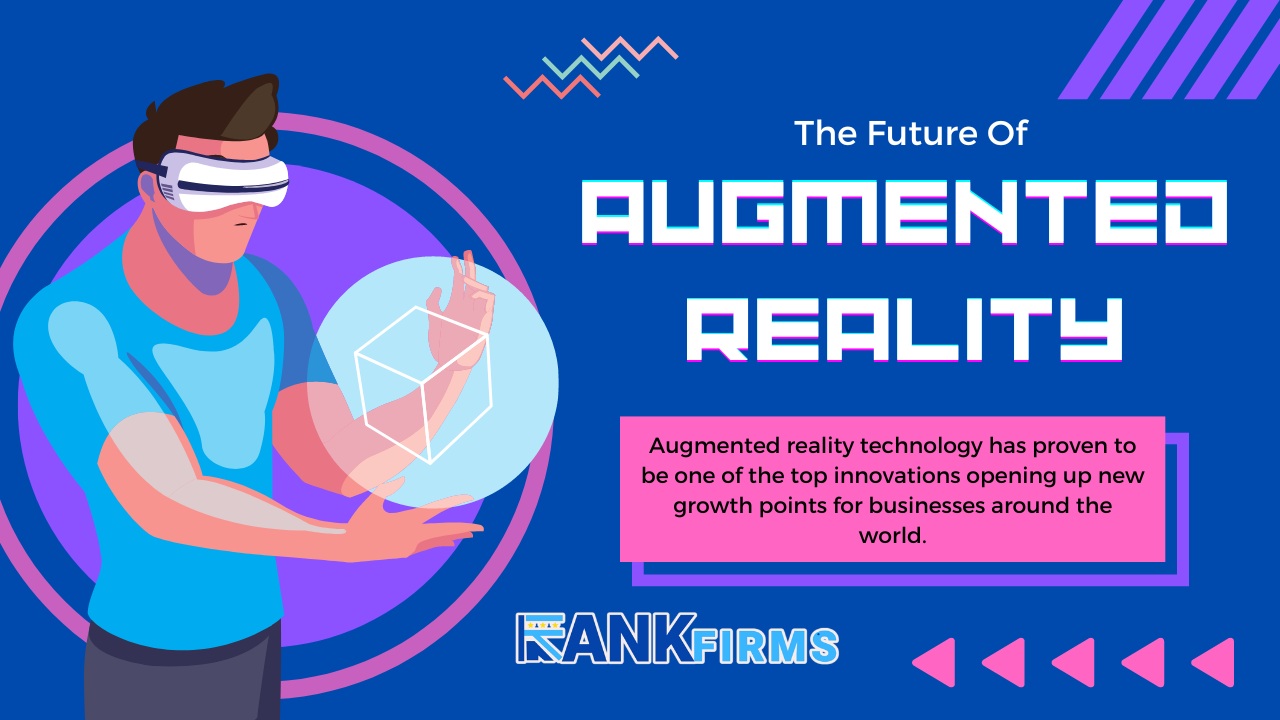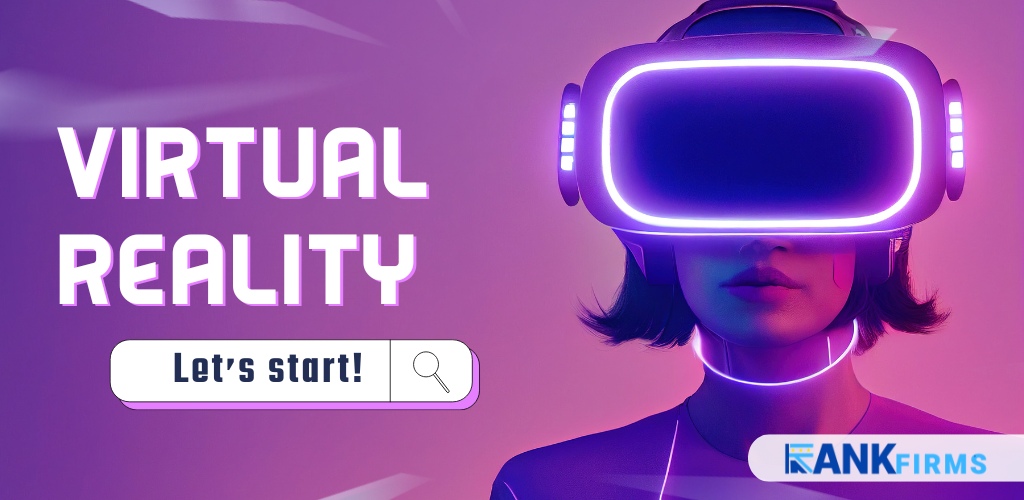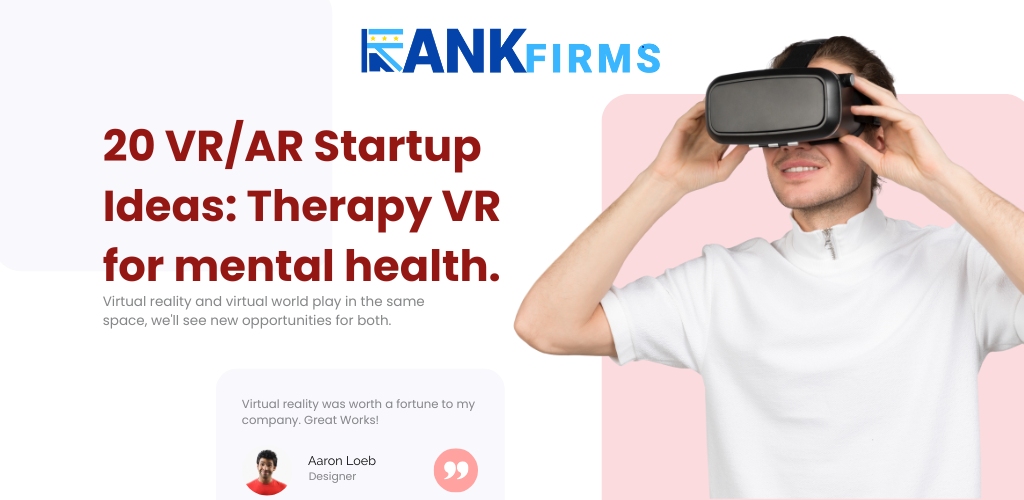Introduction:
In today’s fast-paced world, mental health is increasingly recognized as a critical aspect of overall well-being. With the rise of technology, particularly virtual reality (VR) and augmented reality (AR), there’s a burgeoning opportunity to revolutionize mental health care delivery. One compelling avenue is Therapy VR – a transformative approach to therapy and mental health support. Let’s explore how VR/AR startups can harness this technology to create impactful solutions.
Talking About The Stats:
Did you know that the global AR and VR market was projected to grow significantly over the coming years? Reports suggested that the market could reach several hundred billion dollars by 2025. Moreover, VR hardware sales were steadily increasing, driven by consumer entertainment and gaming, as well as enterprise applications such as training and simulation.
Despite the promising growth, challenges such as high costs of hardware, lack of compelling content, and technological limitations (such as motion sickness in VR) persisted. Additionally, concerns regarding data privacy and security in AR and VR applications need to be addressed.
If you see the implementation and usage of these two technologies,
- Gaming and entertainment remained the primary drivers of consumer adoption of VR technology. Games like Beat Saber, Half-Life: Alyx, and VRChat gained popularity.
- AR was gaining traction in retail, with applications such as virtual try-ons for clothing and makeup, enhancing the online shopping experience.
- In healthcare, VR was used for pain management, therapy, and surgical training. AR was finding applications in surgery navigation and medical education.
- In the enterprise sector, AR and VR were used for training simulations, virtual meetings, product design, and visualization.
- Many software development companies leveraged AR technology for remote assistance, allowing experts to guide field technicians or customers through augmented reality overlays.
Let’s delve deeper into each of these VR/AR startup ideas in the healthcare and mental care sectors

Healthcare:
2. Virtual Medical Consultations:
Develop a comprehensive VR platform that facilitates remote consultations between patients and healthcare professionals.
Integrate features, such as real-time video conferencing, secure messaging, and file sharing for seamless communication.
Ensure compliance with healthcare regulations and privacy standards to safeguard patient data.
3. AR Anatomy Education:
Create interactive AR applications that leverage 3D anatomical models to enhance medical education.
Enable students to explore and manipulate virtual organs, bones, and systems overlaid onto physical textbooks or anatomy labs.
Incorporate quizzes, assessments, and interactive tutorials to reinforce learning objectives.
4. VR Pain Distraction for Pediatric Care:
Design engaging VR games and experiences specifically tailored to pediatric patients undergoing medical procedures or treatments.
Utilize immersive storytelling, vibrant visuals, and interactive gameplay mechanics to distract children from discomfort and anxiety.
Collaborate with pediatricians, child psychologists, and game developers to create age-appropriate content.
5. AR Surgical Navigation:
Develop AR systems that overlay surgical guidance and visualization tools directly onto the surgeon’s field of view during procedures.
Integrate real-time patient data, imaging scans, and surgical plans for precise navigation and anatomical mapping.
Optimize the user interface for intuitive interaction and minimal disruption to the surgical workflow.
6. VR Physical Rehabilitation:
Create VR rehabilitation programs tailored to patients recovering from orthopedic injuries, neurological conditions, or musculoskeletal disorders.
Offer a variety of immersive exercises, therapeutic activities, and gamified challenges to promote mobility, strength, and coordination.
Incorporate progress tracking, feedback mechanisms, and performance analytics to personalize treatment plans and monitor outcomes.
7. AR Medical Equipment Training:
Develop AR simulations that provide hands-on training for healthcare professionals on the use of complex medical devices and equipment.
Offer interactive tutorials, virtual demonstrations, and procedural guidance for tasks such as ultrasound scanning, intubation, and surgical instrumentation.
Enable trainees to practice skills in a risk-free virtual environment before performing procedures on real patients.
8. VR Exposure Therapy for Phobias:
Design immersive VR environments that simulate scenarios relevant to specific phobias, such as heights, spiders, or flying.
Gradually expose patients to fear-inducing stimuli while providing coping strategies, relaxation techniques, and therapist guidance.
Incorporate biofeedback sensors and behavioral tracking to monitor physiological responses and customize exposure levels accordingly.
9. AR Patient Education:
Develop AR applications that empower patients to learn about their medical conditions, treatments, and medications through interactive visualizations and educational content.
Offer personalized health information, medication reminders, and self-care tips tailored to each patient’s needs and preferences.
Enhance engagement and adherence by integrating features such as voice commands, gesture recognition, and social sharing.
10. VR Stress Reduction for Hospitalized Patients:
Create immersive VR experiences that transport hospitalized patients to serene environments, such as beaches, forests, or mountains.
Provide guided relaxation techniques, meditation sessions, and mindfulness exercises to alleviate stress, anxiety, and pain.
Customize the VR content to accommodate different patient demographics, cultural backgrounds, and medical conditions.
11. AR Medical Simulation for Emergency Response Training:
Develop AR simulations that replicate high-stakes emergency scenarios, such as cardiac arrest, trauma resuscitation, or mass casualty incidents.
Provide realistic patient simulations, dynamic team interactions, and time-sensitive decision-making challenges for healthcare professionals to practice critical skills.
Integrate performance metrics, debriefing tools, and continuous feedback loops to enhance learning outcomes and situational awareness.

The Need for Innovation in Mental Health Care
Mental health issues affect millions globally, yet stigma and limited access to traditional therapy often impede individuals from seeking help. Therapy VR presents an innovative solution by providing immersive, accessible, and personalized therapeutic experiences. By leveraging VR’s ability to create realistic environments and AR’s overlay capabilities, startups can develop diverse applications to address a spectrum of mental health challenges.
Mental Health Care:
12. VR Exposure Therapy for Anxiety Disorders:
-
- Implement graded exposure techniques, relaxation exercises, and cognitive restructuring interventions to help patients confront and overcome their fears.
- Collaborate with licensed therapists and mental health professionals to tailor treatment plans to each patient’s specific needs and treatment goals.
13. AR Mood Tracking and Analysis:
- Mobile app development companies can leverage AR technology to create apps that enable users to monitor their mood, emotions, and mental well-being using self-report assessments and behavioral tracking.
- Provide visualization tools, trend analysis, and insights to help users identify patterns, triggers, and coping strategies for managing their mental health.
- Ensure data privacy, security, and confidentiality to maintain user trust and compliance with regulatory requirements.
14. VR Meditation and Mindfulness:
- Website designing companies can design immersive VR environments that facilitate guided meditation, deep breathing exercises, and mindfulness practices for stress reduction and relaxation.
- Incorporate scenic landscapes, tranquil soundscapes, and ambient lighting effects to create a calming and immersive atmosphere.
- Offer customizable meditation sessions, meditation timers, and progress-tracking features to accommodate users’ preferences and schedules.
15. AR Therapy Tools for Therapists:
- Companies must develop AR applications that augment traditional therapy sessions with interactive tools, visual aids, and therapeutic interventions.
- Provide features such as virtual emotion recognition, role-playing scenarios, and exposure therapy simulations to enhance therapeutic engagement and effectiveness.
- Enable therapists to customize treatment plans, track progress, and collaborate with clients in real time using secure communication channels.
16. VR Support Groups for Mental Health:
- Agencies must create VR platforms that facilitate virtual support groups, peer-to-peer counseling, and community-based interventions for individuals with mental health challenges.
- Offer moderated group discussions, guided activities, and psychoeducational resources to promote social connection, empathy, and empowerment.
- Foster a safe and inclusive virtual environment that respects diversity, confidentiality, and peer support principles.
17. AR Cognitive Training for Cognitive Impairment:
- Product design agencies can develop AR cognitive training programs for individuals with cognitive impairments or neurodegenerative diseases, such as Alzheimer’s disease, dementia, or traumatic brain injury.
- Provide cognitive exercises, memory games, and problem-solving tasks to stimulate cognitive functions and promote brain health.
- Incorporate adaptive algorithms, personalized feedback, and progress monitoring features to optimize training outcomes and maintain engagement.
18. VR PTSD Treatment and Trauma Processing:
- Design immersive VR environments that recreate traumatic memories or trigger stimuli associated with post-traumatic stress disorder (PTSD) in a controlled and therapeutic context.
- Integrate evidence-based therapeutic techniques, such as exposure therapy, cognitive processing therapy, and eye movement desensitization and reprocessing (EMDR), to facilitate trauma processing and emotional healing.
- Collaborate with trauma specialists, psychologists, and trauma survivors to ensure sensitivity, safety, and effectiveness in treatment delivery.
19. AR Mental Health Screening and Assessment:
- Develop AR tools for conducting mental health screenings, assessments, and diagnostic evaluations in clinical and community settings.
- Provide standardized assessment instruments, clinical interviews, and symptom checklists overlaid onto real-world environments for efficient and accurate evaluation.
- Integrate decision support algorithms, risk stratification tools, and referral pathways to guide healthcare providers in treatment planning and resource allocation.
20. VR Art Therapy and Creative Expression:
- Create VR art therapy experiences that enable individuals to explore creative expression, emotional processing, and self-discovery through virtual art-making tools and environments.
- Offer a variety of artistic mediums, such as painting, sculpting, music composition, and digital storytelling, to accommodate different artistic preferences and therapeutic goals.
- Provide guided prompts, reflection exercises, and group collaborations to foster self-expression, resilience, and healing in a supportive virtual community.
21. AR Social Skills Training for Autism Spectrum Disorder:
- Develop AR social skills training programs for individuals with autism spectrum disorder (ASD) to improve social communication, interaction, and adaptive functioning.
- Create interactive scenarios, role-playing exercises, and social scripts overlaid onto real-world situations to teach social cues, reciprocity, and perspective-taking skills.
- Customize training modules, feedback mechanisms, and reinforcement strategies to address individualized goals, preferences, and developmental stages.

Conclusion:
By elaborating on these VR/AR startup ideas in the healthcare and mental care sectors, entrepreneurs can gain a deeper understanding of the opportunities, challenges, and considerations involved in leveraging immersive technology for patient care, therapy, and mental wellness. Whether addressing physical ailments, psychological disorders, or emotional well-being, VR and AR have the potential to revolutionize how healthcare and mental health services are delivered, experienced, and evaluated.
Through interdisciplinary collaboration, user-centered design, and evidence-based practice, startups can create impactful solutions that improve access, outcomes, and quality of life for individuals across diverse populations and settings.
Recommended Articles
- https://www.rankfirms.com/advantages-of-java-development-company/
- https://www.rankfirms.com/how-to-discover-the-best-web-design-company/
- https://www.rankfirms.com/innovative-ai-business-ideas-entrepreneurs/
- https://www.rankfirms.com/website-development-ideas-startup/
- https://www.rankfirms.com/creative-strategies-e-commerce-business-ideas-startup/






